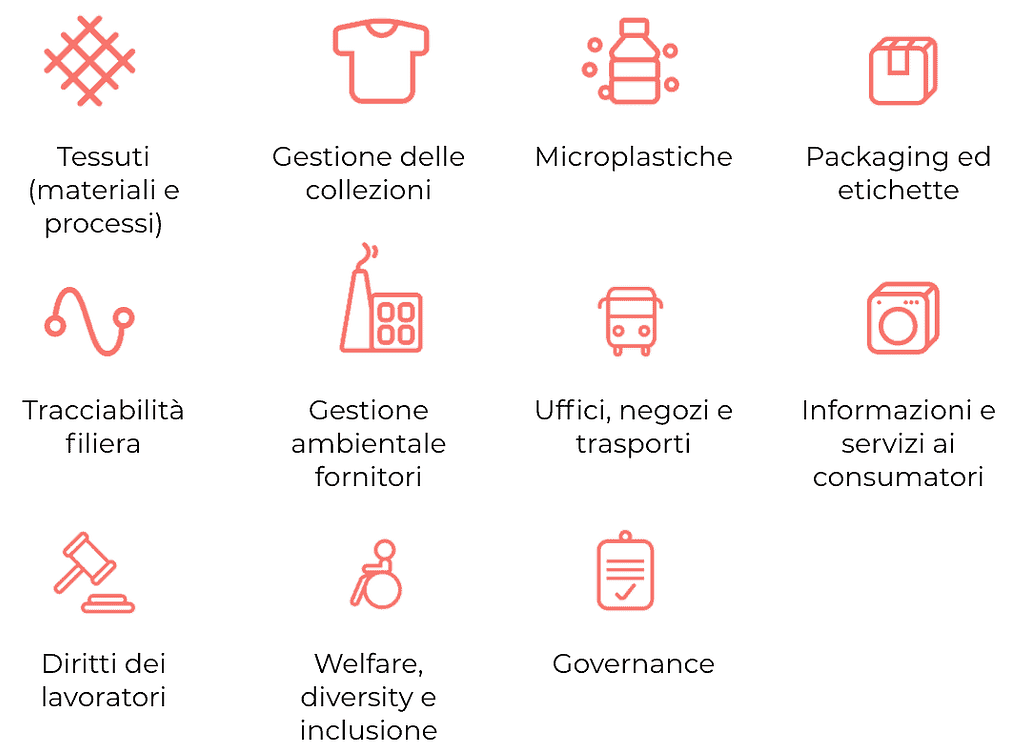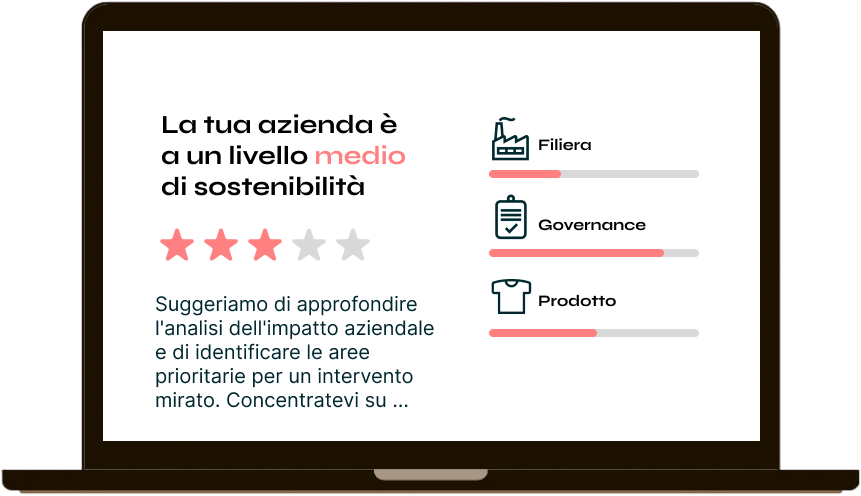Cikis: our Assessment makes your brand more sustainable
The Fashion and Footwear sectors are responsible for 8%-10% of the global impact on climate change. For this reason, in recent years, sustainable development has become an urgency for all companies in the sector, both as personal and corporate responsibility and as a distinctive element capable of bringing greater competitiveness.
However, the integration of sustainable practices within the production processes and the supply chain (necessary to respond to customer requests) requires specialized skills.
In particular, to increase their overall sustainability, it is a priority to work on the supply chain, the heavier impact for a fashion company (for example, Scope 3 represented 95.86% of emissions for C&A).
“This, for us, is the essence of sustainability: good business. Creating is the art of fashion and sustainability is the new work in which to excel.”
Serena Moro, Sustainability Manager, Cikis
Cikis was born to help fashion companies become sustainable. We design and implement the strategy to help your company respond to customers’ demand for sustainability, from the collection’s design to the long-term corporate strategy.
Cikis’ methodology consists of three phases: the Assessment and design of the plan, the project implementation, and continuous monitoring and improvement.
Cikis Sustainability Assessment: characteristics
Our assessment which is the basis for creating an ad hoc strategy, can measure a company’s global sustainability level. It refers to the GRI and ISO 26000 guidelines and works on three macro-categories: Product and processes, Supply chain, and Corporate.
In turn, the macro-categories include 11 areas of analysis:

The Cikis Sustainability Assessment puts particular attention to the value chain, unlike most of the existing frameworks. It thus allows you to identify and work on the areas with the heaviest impact, the supply-chain included. Unlike common beliefs, it is here that the highest impact takes place. Specific and complete action on the supply chain allows activating an opportunity to reduce the impact that can reach up to 61%, further enhancing the corporate commitment at the communication level, as these are elements of high importance for the market.
Our framework follows the principle of materiality and benchmarks, allowing each company to compare itself with specific best practices and then implement a successful sustainability strategy suitable for different budgets. In particular, the project can implement ad hoc requests. Among its areas of expertise, Cikis takes care of supporting companies in the process of adapting to the compliance of a specific buyer.
The first step of the Sustainability Mapping takes place through an interview with the company. Subsequently, Cikis deals with analyzing the entire supply chain. We create and send specific questionnaires also to all its local and foreign suppliers. In this phase, the necessary documentation is requested and verified by Cikis to evaluate the individual performances in the light of the recognized certifications and international standards.
The company receives an overall quantitative score which expresses the stage of the current performance. Jointly, there are specific scores on the three macro-categories, identifying the main areas of intervention. The Assessment reports qualitative indications providing the company with detailed insights and laying the basis for a successful strategy.
Cikis framework advantages: actionable and sector-specific
Cikis’ framework works specifically for the fashion sector. We know that a strategy must reflect the complexity of what – in the textile sector – is a long and multi-material supply chain, to be effective and immediately activated. Compared to the other existing multi-sector assessments, the Cikis methodology is sector-specific and can identify immediate actions.
This first step is of particular importance because it can highlight aspects often underestimated also by the companies. In some cases, the analysis can bring out positive and unsuspected data. The Assessment carried out for a client showed it already had strong sustainability concerning chemical processes. All the suppliers analyzed went beyond the REACH obligations related to the use of chemicals. That meant that the discovery was immediately integrated and enhanced in the communication strategy. On the contrary, the Assessment can highlight the areas on which there is a range of motion, some of which are quick-win: maximum yield with minimum effort.
Beyond the Assessment: the sustainability strategy
After the first phase of Assessment, Cikis defines an effective sustainability strategy capable of integrating company priorities. Choosing Cikis means having practical support in selecting materials and suppliers, in the testing of chemical processes, in the development of circular economy projects, and in communicating the path taken.
Want to find out how to make your company sustainable with Cikis? Request a free consultation call!
Get articles like this and the latest updates on sustainable fashion automatically!
